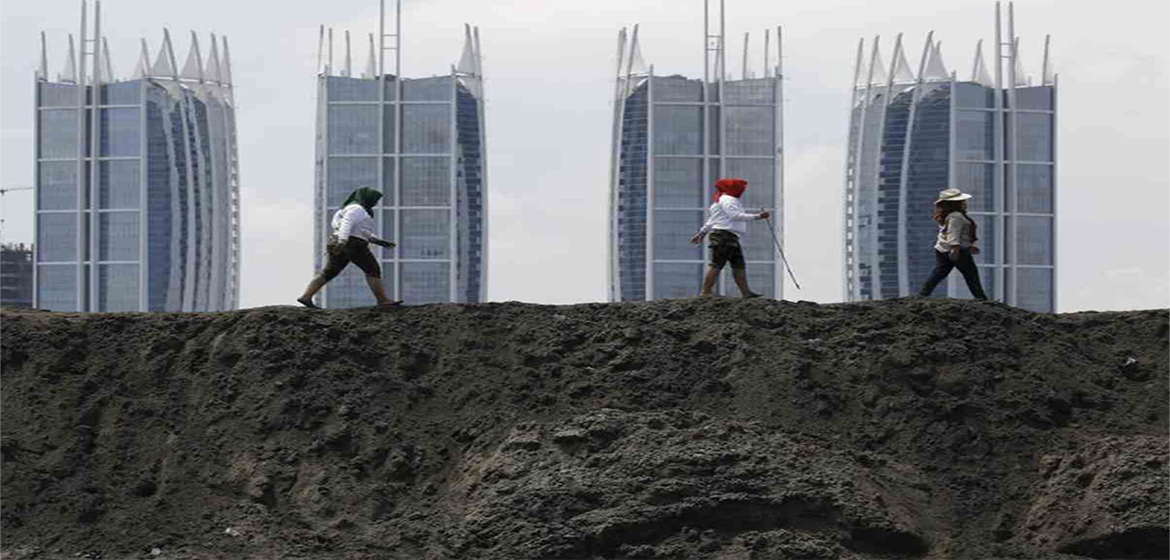by Michael Taylor, Fred Nelson
After decades of being the elephant in the room of global development, only now are we seeing increased recognition of land rights
Land rights have finally been invited to the party - sitting at the intersection of some of the world’s most urgent development, environmental, and human rights priorities.
After decades being the elephant in the room of global development and environmental circles, only now are we seeing increased recognition from governments, organizations and companies that the biggest opportunities for sustainable change – including overcoming hunger and poverty, building peace and justice, and mitigating climate change, often begin with securing the rights of local people to own, control and manage their own lands
So why is it that land rights – or the lack of them - have been ignored by so many for so long?
Land rights are highly political and deeply entrenched in the ways societies and economies are structured.
Addressing inequality in access to land may mean facing uncomfortable truths about the origins and perpetuation of inequality and exclusion.
Concentration in land holdings for some – and the dispossession of others - has colonial roots in many countries, but is also a strongly contemporary phenomenon.
Since 2000, the has documented nearly 70 million hectares – an area bigger than France - in large-scale land deals by transnational investors.
This is why challenging power structures needs more than goodwill from governments.
Effective and committed local land rights activists, grassroots networks, and national organizations are critical to defining and driving change.
We see this in countries like Indonesia, where an impressive suite of indigenous organizations and civil society groups are playing a key role in one of the world’s most important reform movements.
AMAN (the Alliance of the Indigenous Peoples of the Archipelago) is one such network with a unique mixture of political savvy, technical capabilities and local legitimacy. The transformative impact of their work can be seen in the Indonesian constitutional court’s landmark ruling recognizing indigenous customary rights over forests. This led to President Joko Widodo committing to recognize 12.7 million hectares of community forest.
Another recent bright spot is Liberia, where after many years of advocacy, the Senate finally passed a Community Land Rights Act that will provide significant recognition of customary community lands. This would not have been possible without committed civil society organizations such as the SDI (Sustainable Development Institute).
But despite their role in advancing land rights reforms – or perhaps because of it - civil society is under attack around the world.
Land rights defenders are being killed at a horrifying rate; United Nations officials it a systemic crisis. Simultaneously, civic space is being widely curtailed leading to “a global civic space emergency”, as terms it.
While we’re seeing an increase in opportunities in the land rights sector, partnerships need to be shaped by the priorities, needs and strategies of local leaders. Unless solutions are defined at the local level, there is a risk that outside agendas can undermine local decision making.
That is why committed and effective civil society groups need long-term partnerships that can support collective action and collaboration.
Through its Leadership Programme, the (ILC) and Maliasili, together with Procasur and other ILC members are helping local organizations build institutional and leadership capacity. Greater involvement of women and young people is critical to these efforts.
Increased funding for scaling up indigenous and community land rights is also key. - which was formally launched last year – and the Ford Foundation’s BUILD initiative, which is a $1 billion, five-year commitment to strengthen the organizational capacity of up to 300 grantees, including local land rights organizations, are examples.
Strengthening local civil society is critical to accelerating progress on land rights at this crucial time. For this we must partner with local community leaders in bringing about the change they say they need, instead of the other way around.
Fred Nelson is executive director of Maliasili and Michael Taylor is director of International Land Coalition
Source:
Related to SDG 10: Reduced inequalities and SDG 15: Life on land



